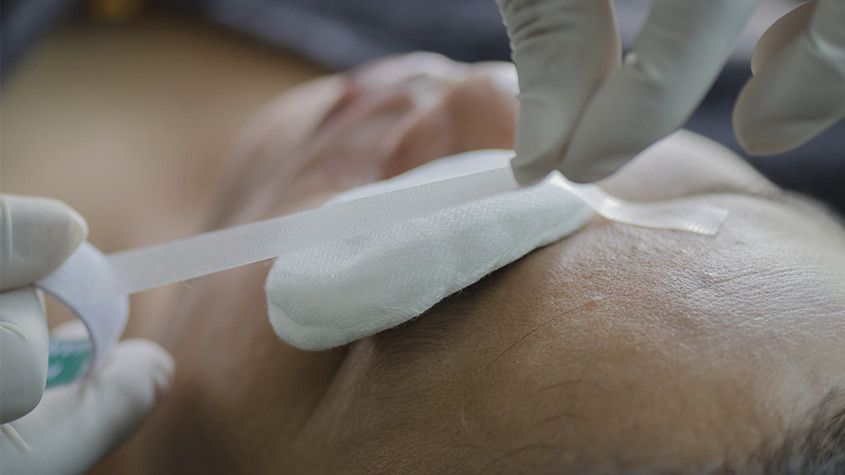
Depending On The Type Of Injury, Any Of The Following Symptoms May Be Present:
-
Bleeding or other discharge from or around the eye
-
Bruising
-
Decreased vision
-
Double vision
-
Total or partial loss of vision in one or both eyes
-
Pupils of unequal size
-
Eye pain
-
New or severe headaches
-
Itchy eyes
-
Redness or bloodshot appearance
-
A sensation of something in the eye
-
Sensitivity to light
-
Stinging or burning in the eye
-
Dissimilar eye movements
-
Bulging eyes
-
Nausea or headaches with eye pain (a potential symptom of glaucoma or stroke)
A black eye is usually caused by direct trauma to the eye or face, causing a bruise to form. The skin around the eye turns black and blue, gradually becoming purple, green, and yellow until disappearing after around two weeks. Swelling of the eyelid and tissues around the eye may also occur. A blow to the eye could cause internal damage or result in a condition like hyphema, which occurs when blood collects inside the front of the eye. Certain types of skull fractures may also cause bruising around the eyes, even without a direct injury to the eye.
A chemical injury may occur due to a work-related incident like exposure to fumes or everyday household products like cleaning solutions, garden chemicals, solvents, and aerosols. Though the hazy cornea caused by acid burns has a good chance of clearing, alkaline substances like lime, lye, drain cleaners, and sodium hydroxide found in refrigeration equipment may cause permanent damage. Thus, it is extremely important to flush out the eyes with large amounts of clean or salt water (saline) after contact with these chemicals.
Photic retinopathy, also known as foveomacular retinitis or solar retinopathy, occurs from damage to the eye’s retina due to prolonged exposure to solar radiation or another bright light source like lasers. This commonly occurs due to staring at the sun, watching a solar eclipse, or viewing ultraviolet light and should be immediately evaluated by a doctor.
In case of an eye injury, gently apply a clean, cold compress to the eye to reduce swelling and stop the bleeding, being careful not to apply too much pressure. If blood pools in the eye, cover both eyes with a clean cloth or sterile dressing before calling your doctor immediately.
In the case of an eye injury DO NOT:
-
Rub or apply pressure to your eye
-
Try to remove foreign objects that are stuck in any part of your eye
-
Use tweezers or any other tools in your eye
-
Put medications or ointments in the eye
-
Attempt to remove contact lenses (unless in the case of a chemical injury where the lenses did not flush out with water, or where immediate medical help cannot be received)
How To Prevent Eye Injuries
Eye injuries can happen anywhere, from high-risk activities to the safest of environments. To decrease the risk of eye injuries, wear protective eyewear when using power tools or playing high-risk sports; follow directions carefully when working with chemicals or cleaning supplies; keep scissors, knives, and other sharp instruments away from young children; and maintain a distance from amateur fireworks.
To decrease the chances of developing permanent eye damage, seek immediate medical evaluation following an eye injury.

